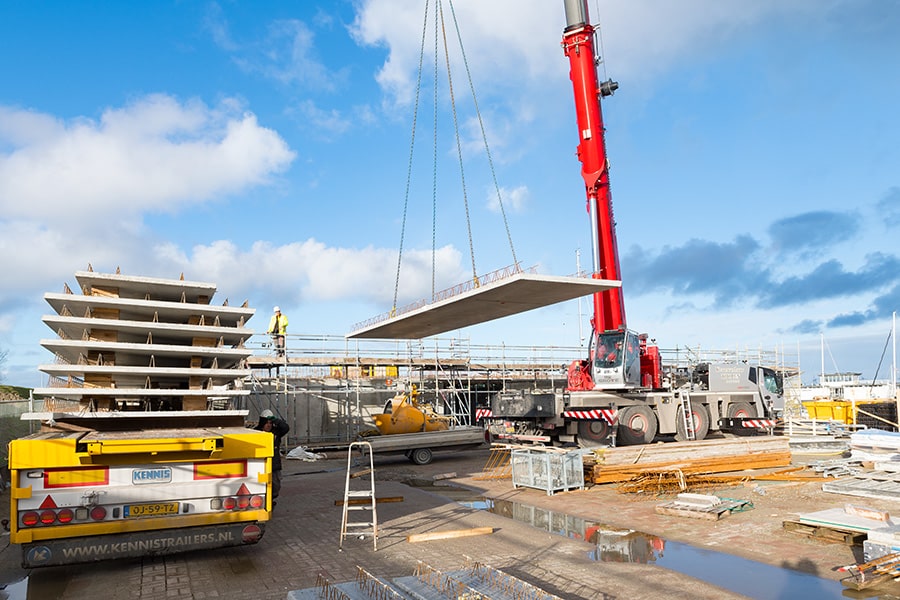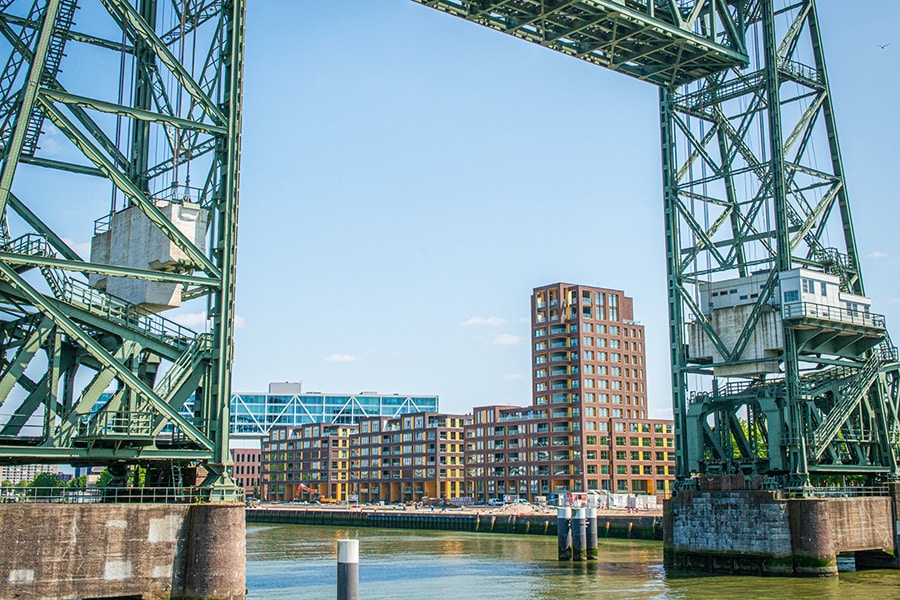
'Shaping circular ambition with modular builder's DNA'
The construction and real estate sector is a large user of primary raw materials and responsible for a large share of CO2-emissions and waste production. Manufacturer of modular construction Jan Snel has expressed an ambition, partly for this reason, to produce completely circular buildings within a few years. "Reuse is in our DNA as a modular builder. We are now going to audit our processes to make it clear and quantifiable where in the chain we can take further steps," says project leader for circularity Jeroen Sheilds.
These can be big steps, if you consider the above correctly. After all, circularity is not just about reusing raw materials, but a production chain in which full circularity is operated. Sheilds: "That means that the goal is to work toward a zero waste policy and to reuse all materials, and that in the near future we want to start producing and building circularly. In essence, we are already doing that within the lifetime of our rentable units. Modular construction is potentially circular and highly repetitive in nature, but if you make the materials used quantifiable, you could reuse materials like concrete or wood, for example, in new modular units. When these would be reusable in their own chain, you have a win-win situation for the environment, the customer and for Jan Snel. We look for so-called 'hotspots' in our chain with which we can achieve results in the short term. Insulation material is another good example. In this way we save on raw materials and waste processing and maintain value for the customer and the environment. As the main contractor for projects in healthcare, education, residential and commercial construction, among others, we are in a good position to give shape to this ambition, also towards our suppliers."

'Modular construction is essentially circular'.
Ecochain
To make these ambitious plans transparent, Jan Snel has started implementing Ecochain, a results-oriented platform that stimulates companies to pursue circularity in all phases of the production process, the construction process and the use phase, by means of testing products and processes for, among other things, CO2-emissions, waste disposal and MKI score (environmental cost indicator). Ecochain is an R&D-driven organization with the aim of achieving 'wealth preservation' for future generations, as well as chain transparency. The Montfoort-based modular builder, capable of 'plug & play' production, in cooperation with Ecochain is provisionally starting to analyze two modular building types. The main objectives are to analyze the life cycle and quantify the environmental impact and circularity of the materials used in the production process and constructions. "Only then will we take follow-up steps," Sheilds said. Jan Snel aims not only to reuse units, but to build fully circular. "Ultimately, the goal is to understand the environmental footprint of the entire chain. And using that to take follow-up steps to make our units circular, through circular procurement and circular design, among other things. This could mean scrutinizing our entire production process. From there, we look at the next steps with an eye toward circularity, based on other materials, applications and demountable structures." A revolution in construction land, also for "re-users" with Jan Snel's DNA.



